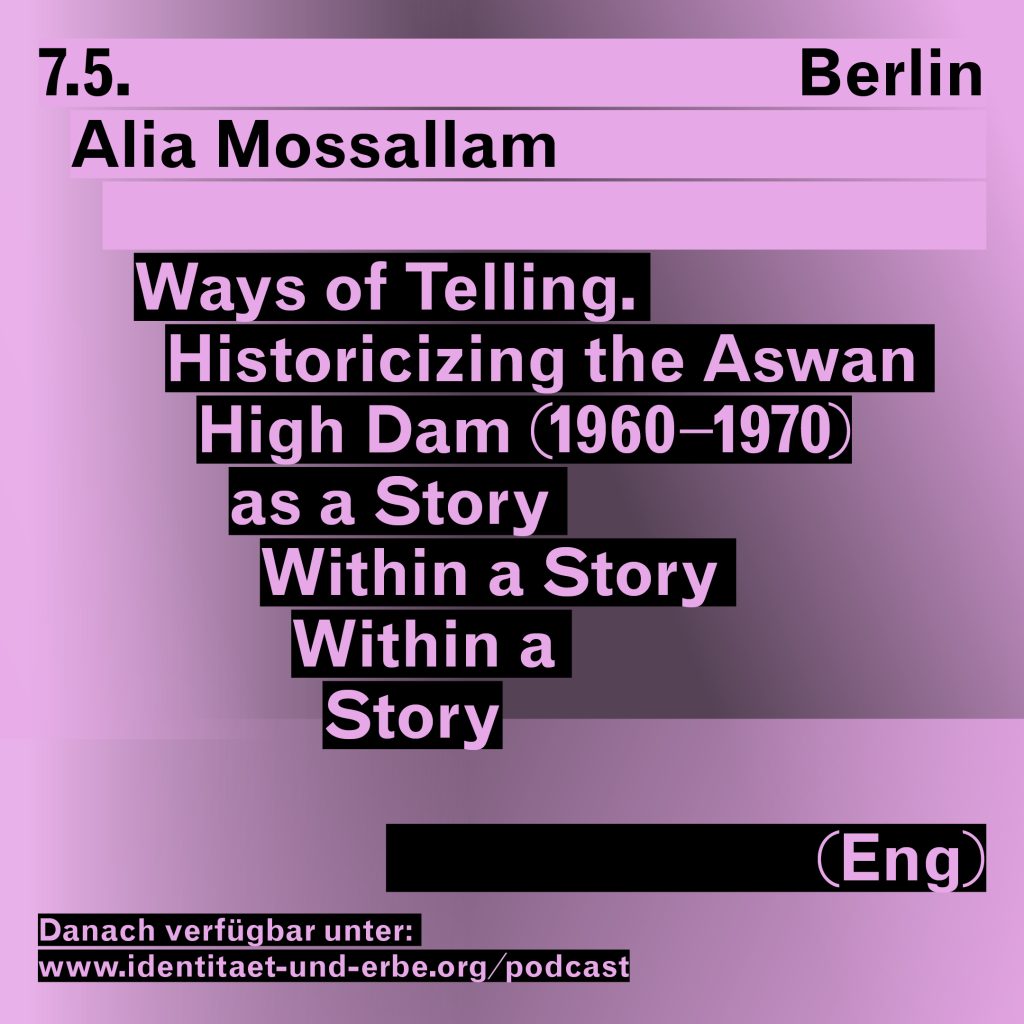Alia Mossallam: Ways of telling. Historicizing the Aswan High Dam (1960-1970) as a story within a story within a story. (ENG)
The Aswan High Dam was a symbol and monument of the 1952 revolution in Egypt. It was a product of the nationalization of the Suez Canal, a project of the third world movement replicated in India, Ghana, Syria and other countries of the non-aligned movement, and contextualized in a militarized discourse, as an extension of the 1956 war against imperialism. Its story was told and retold through songs and radio programs, through workers’ publications and photographic journals, brochures targeting Nubian communities and comic books for children. It mobilized people to physically engage with the Dam, but also engaged the collective imaginary in the future that the Dam promised.
In this lecture I reflect on the challenges of telling the story of the building of the Aswan High Dam, without reconstructing the Dam itself; a narrative of narratives, a hegemonic ideology presiding over all alternatives; a concrete structure that inundated indigenous knowledges in the presence of its hydro-electric sciences. Instead, I attempt to tell the stor(ies) of the Dam as refracted through the politics, hopes and losses of the workers who sacrificed their lives to build it, and the indigenous (Nubian) communities who were sacrificed and displaced for it to be built. What does popular historiography offer us in understanding the shifts in ways of knowing, and ways of telling? And how can we draw upon the architectures of these fluid narratives – these philosophies of knowledge production – when developing our own historiographies in academic contexts.
The story of the Aswan High Dam is an intersection between various historical tracks; from the third world liberation movements to a nationalist high-modernist project, to the possibilities of social mobility and the catastrophes of displacement. One story cannot be told without the other; instead, we have a story within a story within a story.
Alia Mossallam is a cultural historian, educator and writer interested in songs that tell stories and stories that tell of popular struggles behind the better-known events that shape world history. For her PhD she researched a popular history of Nasserist Egypt through the stories and experiences of the popular resistance in Port Said (1956) and Suez (1967-1974) and the construction of the Aswan High Dam through the experiences of its builders and the Nubian communities displaced by it. As a EUME fellow 2017-21 of the Alexander von Humboldt Foundation, she worked on her book on the visual and musical archiving practices of the builders of the Aswan High Dam and the Nubian communities displaced by it. Her new project as an Associate fellow at EUME (2021-24), “Tracing Emancipation Under Rubbles of War”, retrieves the physical and political journeys of Egyptian and North African workers on the various fronts of World War I through the songs and memoires that recount their struggles. Some of her research-based articles, essays and short-stories can be found in The Journal of Water History, The History Workshop Journal, the LSE Middle East Paper Series, Ma’azif, Bidayat, Mada Masr, Jadaliyya and 60 Pages. An experimentative pedagogue, she founded the site-specific public history project “Ihky ya Tarikh”, as well as having taught at the American University in Cairo, the Free University and Humboldt University in Berlin, and the Cairo Institute for Liberal Arts.
Universitätsbibliothek der TU und UDK Berlin
Fasanenstraße 88
Raum Bib 014
